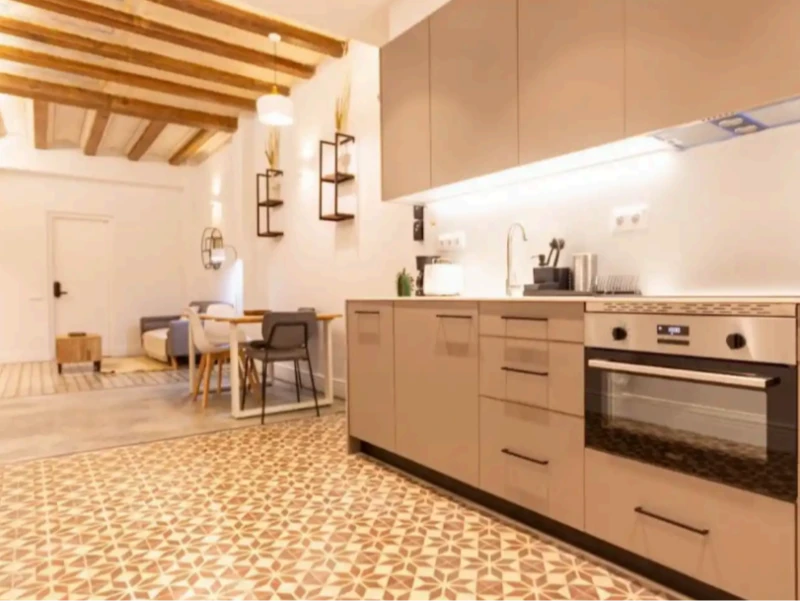
Enter Coliving outlines a plan to reach 1,000 rooms in Barcelona.
The housing shortage in the Catalan capital is boosting the 'flex living' model among young people, students, and expats.
Coliving is becoming popular in Spain. This trend, which originated in Silicon Valley due to the difficulties many young people faced in finding housing, is emerging as an alternative to the housing shortage. Enter Coliving, one of the pioneers in the sector in the country, already has 400 rooms in the Catalan capital, a number that it plans to increase to 1,000 beds in the next two years.
The company offers rental rooms for medium-term stays (typically, the periods range from 6 months to 2 years), taking care of furniture installation, apartment maintenance, bureaucracy, payments, cleaning, and any issues that may arise. Although anyone can be a client of the company, it is particularly popular among middle to upper-middle-class students and foreign workers.
EL BORN AND DIAGONAL, THE FAVORITES
The areas where Enter Coliving has the most influence are Eixample, Gràcia, Poblenou, and El Born, although it also has some rooms in the Port, Raval, Sant Antoni, and Sant Gervasi areas. Prices range between 400 euros and 1,300 euros, depending on the property's condition and location.
Its main complexes are located in the Born district, where it operates two buildings, one on Rec Comtal Street and another on Sant Agustí Vell. It also has two properties in areas adjacent to Avenida Diagonal: at number 60 on Buenos Aires Street and at 94 Enric Granados.
THE HOUSING LAW BOOSTS COLIVING
The new housing law has boosted Enter Coliving's business, which now generates more than 3 million euros annually. According to the company's co-founder and CEO, Erwin Groenendijk, the restrictions on conventional rentals have led many property owners to opt for seasonal rentals, which has driven both supply and demand.
In fact, while conventional rents continue to rise in the city (reaching a record price of 1,171.28 euros in 2023) and legislative restrictions decrease the supply in the Catalan capital, coliving is starting to be seen as an attractive alternative for developers and users.
FULL OCCUPANCY
Enter Coliving, whose occupancy rate ranges between 95% and 99%, believes that due to the current restrictions from the City Council, Barcelona is a city where coliving investment can grow exponentially. "There is less competition than in Madrid, and the same students or foreign workers," notes Groenendijk.
Now, Enter Coliving is also trying to create community spaces among its tenants, promoting activities and shared events such as yoga classes, community beach cleanups at Barceloneta, or parties. "We want anyone coming from abroad to feel accompanied, to meet people, and to feel integrated into Catalan culture," concludes Groenendijk.